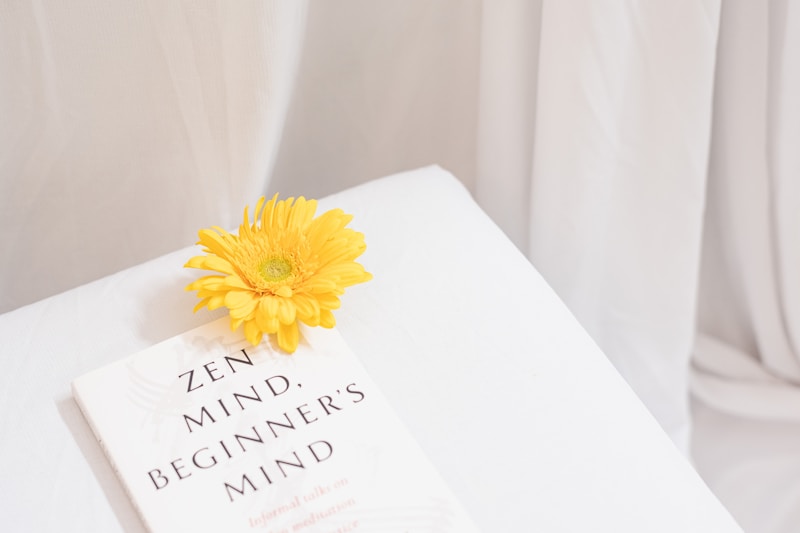On the 5th of November, in a small church in rural Texas, 26 people were innocently gunned down during their Sunday church service.
On the 1st of October this year in Las Vegas, a lone gunman shot at a crowd of peaceful, country music festival-goers, before turning the gun on himself. It was the worst mass shooting in the history of the United States.
On the 15th of September in Parsons Green in West London, on a crowded commuter train, an explosive device was detonated, inflicting injuries on 30 people.
On the 22nd of May, a suicide bomber detonated a bomb in the foyer of the Manchester Arena and killed 22 concert-goers at the Arianna Grande concert. They were young girls and their families, going to watch their favourite singer.
These are just four of the senseless attacks that have happened this year; attacks I dare say we have almost come to expect.
Shortly after the Manchester arena bombing, I was attending the annual Iyengar yoga convention in Birmingham. Everyone present was united in sadness for the victims of the bombing, as hundreds of yogis from around the country gathered together to practise yoga.
Before we started, the teacher leading the event opened with an ancient, sung, Sanskrit prayer, called the Universal Prayer for Peace, the meaning of which is:
“May Brahman protect us both, the teacher and the pupil. May he nourish us both. May we work together with great energy. May our study be energetic and fruitful. May we not hate each other. AUM, peace, peace, peace.”
Through this simple prayer he reminded us all that our work together should be founded on love and not hate. As I sat in the huge hall, singing the word ‘peace’ three times and sending it out into the ether, I felt that these ‘good vibrations’ would spread out into the world and, in some tiny way, counter the evil that had caused such tragic loss of life.
This has made me think how the global community of yoga practitioners – in all its forms – can counter the rise of extremism, the proliferation of division and the poisonous spread of hate. Here are five ways (there are many more) that we can send out a peaceful challenge to the spread of radicalisation.
1. Lead by Example
As a yoga teacher, I stand at the front of the class and demonstrate the poses, guiding the class through my physical actions.
This leading by example can be a metaphor for our everyday actions. We need to look at our own behaviour, starting with the smallest acts. Can we choose to spread love, tolerance and compassion today? With our loved ones, with our friends and neighbours, and with the larger community in which we live?
These seemingly small actions can have a ripple effect, spreading out into the wider world.
2. Return to the Foundations of Yoga
When we’re studying to become yoga teachers we swat up like mad on the cultural heritage which accompanies the poses. Before you even get onto the mat, there are two limbs of yoga, yama and niyama, which are social and individual codes of conduct. But then we get on with our busy lives and forget the foundations upon which our yoga practice is based.
They include qualities such as non-violence, truthfulness and compassion. If everyone practised yoga to the fullest extent there would be no violence, falsehood or bitterness.
As yogis, we cannot change the behaviour of others, but we can incorporate the yamas and niyamas into our behaviour and change our own lives, thus encouraging others as well.
3. Accept the Highs and Lows
Yoga practice has a habit of revealing how we are feeling, especially when we didn’t realise anything was wrong. At the end of an intense class there are days when I just want to go straight home to bed and curl up. At other times, I bounce out off my mat, raring to meet the next challenge. Alternatively a pose you might have found easy last week becomes impossible the week after.
Instead of pouring blame on ourselves, yoga teaches us that we come to our mat in a different state every time we practice. We just need to observe how our mind and body reacts and learn from it.
In the same way, the world has its low times, when we feel that humanity will never learn and history will repeat itself ad infinitum. But there are so many highs too – so many brave, loving, caring heroes who are changing the world to the best of their ability, such as the White Helmets in Syria, who selflessly face danger to save the lives of others.
4. Choose Tolerance
Contrary to what many people think, yoga isn’t just for bendy, blonde insta-yogis. Yoga really is for anybody and everybody. Recently Jessamyn Stanley, an awesome yoga teacher from the States, has highlighted that yoga has become the preserve of rich, white women and this is not how it should be.
When you get onto your yoga mat, it’s just your body, moving, working to the best of its ability. In a yoga class, everyone is different, proportionally, physiologically and so on. But we’re all equal. We’re all just bodies on a mat, doing yoga, and anything else is simply irrelevant.
Instead of thinking what’s different about each other, we should imagine the world as one big yoga class. All different bodies, doing yoga, together.
5. Become Present
There is so much in the world to worry about. The tragedy in Texas is just the most recent tragedy. There are also the huge topics that dominate the headlines, day in, day out – Brexit, climate change, the refugee crisis, famine, poverty – sometimes we feel we just want to put our heads in the sand and never listen to the news again.
We could allow ourselves to become paralysed with fear and despair. But worrying won’t change anything, it just means that we suffer for longer.
The real purpose of yoga, as described by Patanjali, is shatteringly simple. It is:
yogah cittavrtti nirodhah – Yoga is the cessation of movements in the consciousness.
That’s it. So by taking to our mats, by bringing our minds into our bodies, we still the incessant turmoil of the mind, which takes us backwards and forwards and anywhere but the clarity and simplicity of the present moment. In which there is no fear, or suffering, only existence.
If you feel moved to help those who have been affected by the recent tragedies here and in the United States there are various charities that respond after terrorist incidents, including The British Red Cross, Disaster Action and The National Compassion Fund (in the States).













